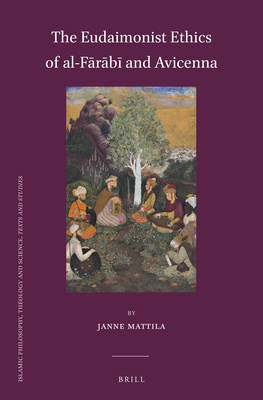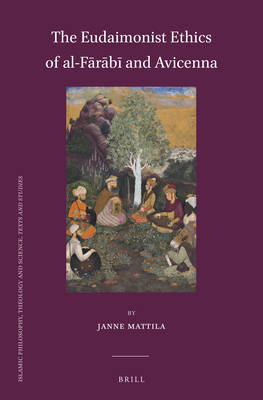
- Afhalen na 1 uur in een winkel met voorraad
- Gratis thuislevering in België vanaf € 30
- Ruim aanbod met 7 miljoen producten
- Afhalen na 1 uur in een winkel met voorraad
- Gratis thuislevering in België vanaf € 30
- Ruim aanbod met 7 miljoen producten
Zoeken
Omschrijving
Now available in Open Access thanks to the support of the University of Helsinki.
Al-Fārābī and Avicenna are the two most influential authors of the classical period of Arabic philosophy, yet their ethical thought has been largely overlooked by scholars. In this book, Janne Mattila provides the first comprehensive account of the ethics of these important philosophers. The book argues that even if neither of them wrote a major ethical work, their ethical writings form a coherent ethical system, especially when understood in the context of philosophical psychology, cosmology, and metaphysics. The resulting ethical theory is, moreover, not derivative of their classical predecessors in any simple way. The book will appeal to those with interest in Arabic/Islamic philosophy, Islamic intellectual history, classical philosophy, and the history of moral philosophy.
Al-Fārābī and Avicenna are the two most influential authors of the classical period of Arabic philosophy, yet their ethical thought has been largely overlooked by scholars. In this book, Janne Mattila provides the first comprehensive account of the ethics of these important philosophers. The book argues that even if neither of them wrote a major ethical work, their ethical writings form a coherent ethical system, especially when understood in the context of philosophical psychology, cosmology, and metaphysics. The resulting ethical theory is, moreover, not derivative of their classical predecessors in any simple way. The book will appeal to those with interest in Arabic/Islamic philosophy, Islamic intellectual history, classical philosophy, and the history of moral philosophy.
Specificaties
Betrokkenen
- Auteur(s):
- Uitgeverij:
Inhoud
- Aantal bladzijden:
- 256
- Taal:
- Engels
- Reeks:
- Reeksnummer:
- nr. 116
Eigenschappen
- Productcode (EAN):
- 9789004506473
- Verschijningsdatum:
- 21/04/2022
- Uitvoering:
- Hardcover
- Formaat:
- Genaaid
- Afmetingen:
- 157 mm x 234 mm
- Gewicht:
- 498 g

Alleen bij Standaard Boekhandel
+ 363 punten op je klantenkaart van Standaard Boekhandel
Beoordelingen
We publiceren alleen reviews die voldoen aan de voorwaarden voor reviews. Bekijk onze voorwaarden voor reviews.











